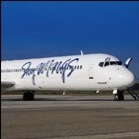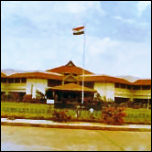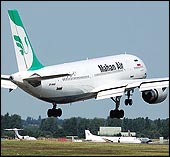 This afternoon I was at Update 2011, the conference held every year in DC by the Bureau of Industry and Security (“BIS”). One of the break-out sessions dealt with the new license exception STA and, needless to say, it was well attended by exporters interested in the new exception.
This afternoon I was at Update 2011, the conference held every year in DC by the Bureau of Industry and Security (“BIS”). One of the break-out sessions dealt with the new license exception STA and, needless to say, it was well attended by exporters interested in the new exception.
I want to start out, however, by correcting something I missed in one of my earlier posts on license exception STA’s application to the new 600 series of items under the proposed rule dealing with items transferred from the United States Munitions List. Replacement parts and components do not need explicit BIS certification of eligibility under the process set forth in proposed section 740.20(g). That process only applies to end items. Parts and components in the new 600 series can be exported without license under exception STA if they are destined for use by a government in one of the 36 countries eligible under section 740.20(c)(1).
The biggest surprise came in response to a question as to how many exporters had so far used license exception STA. According to information from the Automated Export System, license exception STA has only been used twice since the exception became effective.
The BIS panel indicated that exporters could apply for a license even for products and destinations that qualified for the exception. Initially, BIS will hold the application in order to contact the exporter and confirm that the exporter wants to apply for a license rather than use exception STA. Also such a license, if and when granted, will not slip in as provisos the conditions that are otherwise required for STA eligibility, such as the required written certification from the foreign consignee. In fact, although the panel did not say this, many exporters may prefer to get a license rather than use exception STA precisely because of the difficulty of getting the required written certification from the foreign consignee.
One panel member brushed off the importance of the additional record keeping requirements for using the exception. Exporters will need to keep the written certification from the foreign consignee, the written notification from the exporter to the consignee of the applicable ECCN, and the written notification to the consignee that the shipment is made pursuant to license exception STA. The BIS spokesman brushed these new requirements off by saying, in effect, the exporter already has to keep voluminous records, so what are a few more? Really.
One audience question caught a panel member off guard. The question was whether license exception STA could be used, where otherwise applicable, to a temporary export for a duration longer than that permitted by license exception TMP. Initially, the panel member noted that the license exception could be used for temporary exports as well as permanent exports. But then the panel member realized that, under the question, the temporary export would be in the custody of an employee of the exporter. That, he thought, created problems because there had to be a foreign consignee for license exception STA to apply.
 The Bureau of Industry and Security (“BIS”) today added a number of entities to the Entity List, including Greek charter airline Sky Wings Airlines. When a company is added to the Entity List, all exports of items “subject to the EAR” — i.e. items with at least 25 percent U.S.-origin controlled content — will require export licenses before they can be exported to that company. Normally there is a general policy of denial for license applications for exports to companies on the Entity List, and that is the case for Sky Wings.
The Bureau of Industry and Security (“BIS”) today added a number of entities to the Entity List, including Greek charter airline Sky Wings Airlines. When a company is added to the Entity List, all exports of items “subject to the EAR” — i.e. items with at least 25 percent U.S.-origin controlled content — will require export licenses before they can be exported to that company. Normally there is a general policy of denial for license applications for exports to companies on the Entity List, and that is the case for Sky Wings.
 Posted by
Posted by  Category:
Category: 


 Back in February, this blog
Back in February, this blog  This afternoon I was at Update 2011, the conference held every year in DC by the Bureau of Industry and Security (“BIS”). One of the break-out sessions dealt with the
This afternoon I was at Update 2011, the conference held every year in DC by the Bureau of Industry and Security (“BIS”). One of the break-out sessions dealt with the  On March 17, 2008, the Bureau of Industry and Security (“BIS”)
On March 17, 2008, the Bureau of Industry and Security (“BIS”) 

